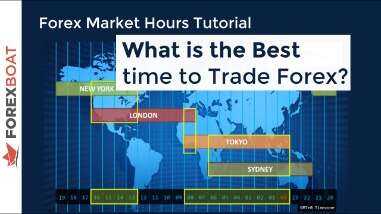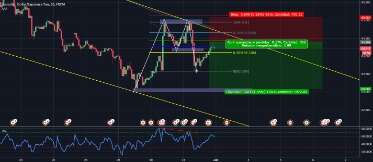
If you have the means to do so, completing a degree from a university will help immensely with future results. Finance degrees offer a ton of factual information about trading strategy and accounting. Economics majors explain currency and fluctuations in business over time. Even degrees in math or engineering teach analytical skills that can boil down to profit. Options give a trader the opportunity to buy or sell a stock (or other assets) if it reaches a predetermined price by a certain day. Trades often involve a bundle of assets and present the possibility of getting more for a lower price.
- You can’t start trading professionally without a solid understanding of the basics.
- The next thing every professional trader has to know is what trading strategies and techniques there are and how to apply them in real-life trading.
- Well, professional traders obviously make trading their full-time career.
- Start with a clear and concise plan with proven strategies and then leverage the 20 rules that follow.
- Likewise, identify patterns that lead to your losers and avoid trading these setups.
Then, Moody downgrade Bear Sterns to junk status which caused panic in the markets. However in 1998, LTCM nearly collapsed when it incurred staggering losses of $4.6 billion, and it required the Federal Reserve to rescue it. Nick was heavily long the Nikkei 225 and he kept averaging into his losses as the market went against him. If you’re stuck, don’t worry because the answers are contained in this article. It is advisable to select the features depending upon your trading needs and avoid subscribing to ones that are not needed.
The bailout of Long-Term Capital Management
These 20 rules are tips that long-time pros use to stay in the winner’s circle. Booking reliable profits in financial markets is harder than it looks at first glance. In fact, unofficial estimates suggest that more than 80% of would-be traders eventually fail, wash out, and turn to safer hobbies. But the brokerage industry rarely publishes client failure rates because they’re likely concerned the truth will scare off new accounts. You’ll be exposed to different trading styles by successful traders, and learn the essentials of what it takes to be a consistently profitable trader. And without risk management, you can’t exploit your edge in the markets… even if you have a profitable trading strategy.

After learning the trading basics, professional traders should focus on expanding their knowledge. For instance, if you decide to trade Forex, you need to learn about currency quotes, points, Forex trading strategies, and other helpful information. Learning more about one particular market can help you become an expert and make professional trading easier. Similarly to the trading basics, you can find information about the advanced basics online and in books and take a more advanced course about the market you’re interested in. Adam Milton is a professional financial trader who specializes in writing and curating content about commodities markets and trading strategies. Through both his writing and his daily duties in trading, Adam helps retail investors understand day trading.
R – Review your trades
Unfortunately, these types of people rarely become successful. Even a simple trading strategy often requires at least several months of hands-on experience before the method starts producing profitable results. Stocks, futures, options, ETFs, and mutual funds all trade differently.
It’s natural for traders to emulate their financial heroes, but it’s also a perfect way to lose money. Learn what you can from others, then back off and establish your own market identity, based on your unique skills and risk tolerance. Some traders try to make up for insufficient skills with expensive software, prepackaged with all sorts of proprietary buy and sell signals. These tools can interfere with valuable experience when you think the software is smarter than you are. Use tools that fit well with your trading plan, but remember that, ultimately, you are the one calling the shots. Can you break away from the pack and join the professional minority with an approach that increases odds for long-term prosperity?
Gain experience as a trader
I think that the IDERR method may be the structure i´ve been looking for, thank you for sharing your knowledge Rayner. It’s quite correct, quals, careers and even global reputations do not make a trader profitable nor a professional. You cannot change your trading plan after a few losing trades. Because if you’re entering trades based on how you feel instead of following your plan, then it would be impossible to tell whether your strategy has an “edge” in the markets.
Over the long run, active investment strategies (i.e. stock picking) tend to underperform the broader market, especially after taking into account transaction costs and taxes. Indeed, a passive index strategy seems to be best for most long-term buy-and-hold investors. It is okay to feel good about a trade that’s going your way, but the money isn’t yours until you close out or cover the position.
You can even find free courses for beginners with everything you need to know to understand what trading involves. FBS also has a Guidebook that helps both beginners and more experienced traders to learn more about Forex and trading, in general, every day. Many trading platforms offer a paper trading capability, which is trading with “fake” money instead of your own, real dollars. As you develop trading strategies, you can try them out with paper money and real-time market movements. It’s common knowledge that trading real money is very stressful, especially if you’re just beginning to trade. Things can quickly turn sour and leave you without any profit and, sometimes, with significant debt.
Engage Your Trading Plan
Without a clear understanding of a security’s characteristics and trading requirements, initiating a trading strategy can lead to failure. Swing traders use changing market conditions for their benefit, trading strategies over days or weeks as the market swings in one direction. Knowing when shares are low enough to buy and when they’ve reached peak height to sell takes skill. Those unable to do so will lose money and struggle to attain profitable results. Those performing day trading may perform short selling or ride the investment wave.
Work environment for a professional trader
The main difference from options is that a futures contract is binding. Once the set date arrives, the buyer and seller must perform the trade as agreed upon in the contract, despite any gains or losses either side may incur. Professional traders employed by companies usually have to work fixed hours, though this doesn’t apply to all companies. At the moment, the trading industry is expected to grow over the next decade by 4–6%, despite an earlier decline in demand. This is good news for everyone thinking of becoming a professional trader.
Lock in what you can as early as you can, with trailing stops or partial profits, so the hidden hands of the market can’t pickpocket your gains at the last minute. Accept them gracefully and stick to the time-tested strategies you know will eventually get your performance back on track. Very encouraging and highly motivational, will start to implement this on my stocks trading account. May I ask will professional trader like JP Morgan trade stock and forex CFDs like retail investor or they trade in different environment. This article has given me little understanding about the markets. If you’re not sure how to do it, go read this post on risk management and position sizing.



